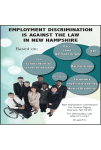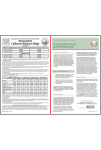Connecticut’s Essential Workers Protected Under Executive Order 7JJJ

In response to the public health emergency caused by the coronavirus disease 2019 (COVID-19), Governor Ned Lamont has signed a new executive order. Executive Order No. 7JJJ creates a “rebuttable presumption” that an essential worker who initiates a claim for workers compensation benefits, and who missed at least one day of work between March 10, Read more










